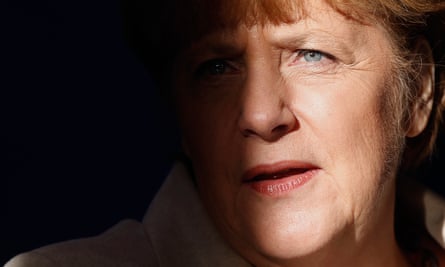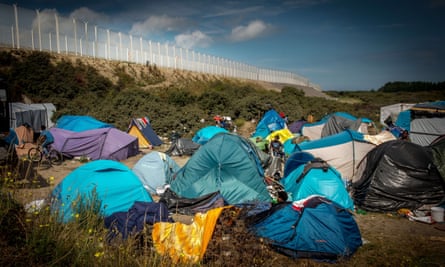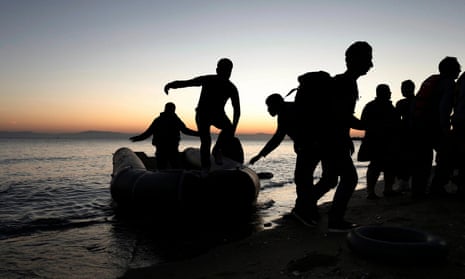After calling the shots on Ukraine last year and leading Europe’s reaction to the Greek conundrum, Angela Merkel has assumed responsibility for forging a common European strategy on migration.
It’s not that this is a new idea, but the political impetus from Berlin may finally yield more convincing results than those achieved so far. She is ready to tackle the issue head-on. The imponderable is whether fellow European leaders will let her.
For immigration remains a political hot potato, prompting most European leaders to retreat to the safe political territory of the nation state. David Cameron’s attitude has been a case in point, but look too at Slovakia, which has said it will take only Christian refugees, and it is clear that populism is rising across the continent.
Throughout Europe, leaders are succumbing to the keep-them-out syndrome. Hungary is building a fence (along its border with Serbia). Spain has done the same (in Ceuta and Melilla). Bulgaria followed suit (on the border with Turkey). More fencing is springing up in Calais.
In Macedonia, which is not in the EU, they are deploying armoured vehicles against migrants. Will this work? Unlikely. When you flee atrocities and war, the desperation to reach a haven will always be stronger than security fences and dogs.
In dealing with the refugee flows that will be a fact of life for years to come, Europe must both concentrate on its needs and live up to its humanitarian standards. Without a decent common asylum policy, the EU will flout the fundamental values that go to the very essence of the European project. And without immigration, Europe will grow old and squander opportunities for future generations. So now might be a good time to take the long view. This was Angela Merkel’s message last weekend when she said refugees will “preoccupy Europe much more” than the Greek euro crisis. The issue of asylum “could be the next major European project”, pronounced the chancellor. Whatever ambiguities exist, few can now doubt her priorities.
How might she proceed? The solutions aren’t simple, but they are fairly well identified. The only sustainable way to prevent deaths at sea and other dramatic scenes at borders is to open up alternative, legal routes for migration: ways for asylum seekers to apply for protection in Europe without having to embark on needlessly perilous journeys. And the only way Europeans will come to grips with the deeper issue of immigration – as we must – is by looking closely at ourselves, remembering our collective past and, more practically, by noting that demographic trends ultimately demand new inflows.
Germany is well placed to lead. After all it is, along with Sweden, the country that to date has welcomed the largest number of asylum seekers. Applications are set to reach a record number of 800,000 for 2015, three times more than in previous years. There is a psychological imperative at work. Public attitudes shaped by the nation’s history make it difficult for Germany to pursue the “keep-them-out” approach. Its government has shown more generosity than most in distributing aid packages to arriving refugees. But there is pragmatism too. Low fertility rates make the need for migrants a reality. This is less often discussed, but nevertheless it is an important part of the analysis in Berlin. Some projections show the country’s population is set to drop by 18 million people by 2060.
Europe faces the same challenge, for it too will need more workers in the decades to come, with the EU’s working-age population projected to shrink by 13 million by 2030. Labour force shortages loom, with France and Ireland – and arguably the UK – the exceptions, not the norm.

Of course, a clear distinction needs to be made between the urgency of asylum claims arising from war zones and other strife, and the longer-term issue of addressing demography and immigration needs. But neither category can be addressed without a common approach.
EU leaders seem to be edging towards this, with summits scheduled for this autumn on migration. But the list of agenda items runs long: the limits of the so-called Dublin regulation – setting out which state should take responsibility when an asylum application is made – the lack of shared asylum criteria and procedures, the gap between resources and demands.
But this must be the direction of travel. The UK has domestic sensitivities to consider as leaders renegotiate its links with the EU in the run-up to a referendum. But Germany and France want a new collective way forward. Greece and Italy, on Europe’s migratory frontline, also crave more collective action.

Merkel is right to frame this as a strategic issue for Europe for reasons that resonate in Berlin and beyond. Germany is faced with a major increase in asylum demands not just from Syria but from the Balkans – one of the EU’s weaker geopolitical flanks. Addressing the migration question will likely become a growing part of the overall task of stabilising the Balkans, whose integration into the EU remains unfinished. Merkel knows that if solutions aren’t found, populism and xenophobia will grow in Germany as elsewhere in the EU.
Discussions with African states, not to mention dealing with the quagmire of the Middle East, will be as crucial and difficult. For example, how can Europe have any meaningful dialogue with Turkey if it leaves the burden of a massive influx of Syrian refugees up to neighbouring states?
What Merkel seems to want is for an issue that has been tackled piecemeal to be addressed holistically. It’s a tough message; that the current denial of realities amounts to a collective stupidity. Europe needs migrants and for that to happen in a decent, sustainable way, legal channels need to be opened, and resources devoted to integration. This is an existential issue, not one that can be solved by haggling over the “Calais jungle” or bickering over quotas.
Merkel, with her prioritisation, has it right. There is a moral obligation to save people in need, but there must also be collective recognition that we have entered a defining era, and a collective effort to meet the challenge.

